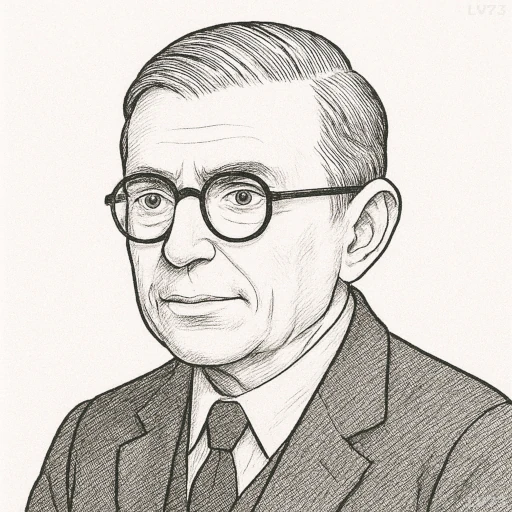“I am no longer sure of anything. If I satiate my desires, I sin but I deliver myself from them; if I refuse to satisfy them, they infect the whole soul.”

- June 21, 1905 – April 15, 1980
- Born in France
- Philosopher, novelist, playwright
table of contents
Quote
“I am no longer sure of anything. If I satiate my desires, I sin but I deliver myself from them; if I refuse to satisfy them, they infect the whole soul.”
Explanation
In this quote, Sartre explores the internal conflict between desire and moral choice, illustrating the psychological struggle that comes with living in a world where there are no clear or absolute guidelines for right or wrong. The statement “I am no longer sure of anything” expresses a sense of existential uncertainty and doubt, reflecting the disillusionment of living in a world without fixed meanings or inherent morality. Sartre’s existentialism often emphasizes the tension between the individual’s freedom and the responsibility that comes with making choices in an uncertain world. In this quote, he captures the internal paradox of desire—whether to give in to one’s impulses or to resist them, and the consequences of each choice.
The first part of the quote, “If I satiate my desires, I sin but I deliver myself from them,” suggests that indulgence in desire brings a sense of moral transgression (“sin”), but also a temporary relief from the burden of wanting. On the other hand, “if I refuse to satisfy them, they infect the whole soul” implies that repression or denial of desire doesn’t eliminate it but instead leads to internal conflict and psychological damage, as the unfulfilled desire festers and disrupts the soul. Sartre captures the existential dilemma between freedom and responsibility—the freedom to make choices is accompanied by the responsibility to live with the consequences of those choices, whether those choices involve indulgence or denial.
In modern contexts, this quote resonates with the tension between immediate gratification and long-term consequences. People today often grapple with the short-term satisfaction of indulging desires (whether they be material, emotional, or psychological) versus the long-term effects of resisting them, especially in a society that promotes both instant gratification and self-control as virtues. Sartre’s words challenge us to think about the true costs of satisfying or repressing our desires and how these choices shape our authenticity and well-being. It underscores the importance of self-awareness and honesty in navigating the complex relationship between our desires and moral choices in a world without fixed guidelines.
Would you like to share your impressions or related stories about this quote in the comments section?




